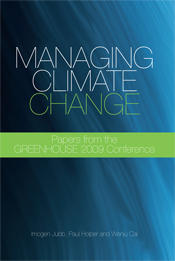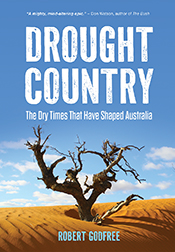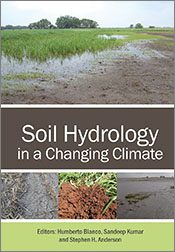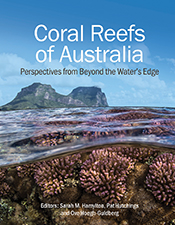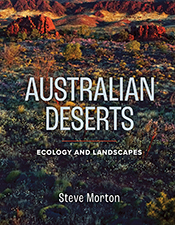Managing Climate Change
Papers from the Greenhouse 2009 Conference
Edited by: Imogen Jubb, Paul Holper, Wenju CaiProvides an important snapshot of the issues presented at the Greenhouse 2009 conference.
A number of international, high-level science and policy meetings have been influential in the ongoing global climate change negotiations. One of these landmark meetings was Greenhouse 2009, where those involved in research, policy and communication of various aspects of climate change provided the latest assessments of the science and likely impacts on Australia and the world. Managing Climate Change provides an important snapshot of the issues presented at the Greenhouse 2009 conference. + Full description
The book gives a summary of the state of climate change science, approaches to handling the impacts and adaptation measures we are likely to face, and how to communicate the issue in order to generate better decision making and behavioural change towards sustainability. It features the latest Australian research and includes chapters on emerging fields such as the need to include behavioural and social patterns to address climate change, as well as adaptation measures for agriculture, energy use and infrastructure that may be required.
The announcements, ideas and discussions at the Greenhouse 2009 conference continue to make an important contribution to addressing and tackling climate change.
- Short descriptionNews
No longer available in a print edition.
Reviews
"The book is well written and engaging ...it is written in accessible style that makes it possible for a wide readership to familiarize itself with the issues it deals with. In addition, although the book focuses on Australia, nevertheless, if only from a methodological point of view, it can be useful to many people in other parts of the world that are interested in studying climate change issues.
The editors of this book have not only kept attention on the challenge of reducing dependence on fossil fuels but also brought together a collection of essays that enlighten us about many of the dimensions of this important global issue. The book certainly deserves to be widely read and used."
Evangelos Manolas, International Journal of Climate Change Strategies and Management, Volume 3, Issue 3, August 2012
"The key contribution of this collection is that it both builds on existing knowledge and pushes the conversation beyond an earlier preoccupation with biophysical impacts and mitigation concerns to consideration of synergistic impacts of interactions between biophysical and non-biophysical drivers.
While such a diverse and eclectic mix of topics cannot be expected to deal with particular themes in any depth, the book will be useful as a resource and teaching text for both undergraduate and postgraduate levels. The general public may find the contents enlightening, while policy-makers and practitioners in particular sectors - agriculture, NRM, energy efficiency, and planning - will find the chapters in Part 2 useful."
Julie Davidson, Australasian Journal of Environmental Management 2011
Details
ePDF | May 2010ISBN: 9780643100176
Publisher: CSIRO Publishing
Available from eRetailers
ePUB | May 2010
ISBN: 9780643101999
Publisher: CSIRO Publishing
Available from eRetailers
Contents
Part 1 Climate change sciencePart 2 Impacts and adaptation
Part 3 Communicating climate change
View the full table of contents (PDF).
Authors
Imogen Jubb is the Communication Officer for the Australian Climate Change Science Program. She works closely with scientists studying many aspects of climate change, from sea-level rise, climate modelling and atmospheric research.Paul Holper manages CSIRO’s involvement in the Australian Climate Change Science Program, a $15 million program supported by the Department of Climate Change. He convened the international GREENHOUSE 2009 conference in Perth in March. His most recent book is Climate Change: What You Can Do About It.
Wenju Cai is a senior principal research scientist with CSIRO Marine and Atmospheric Research specialising in the role of oceans in climate variability and climate change. He is the Chair of the World Meteorological Organization’s Pacific Panel World Climate Research Programme on Climate Variability and Predictability.

